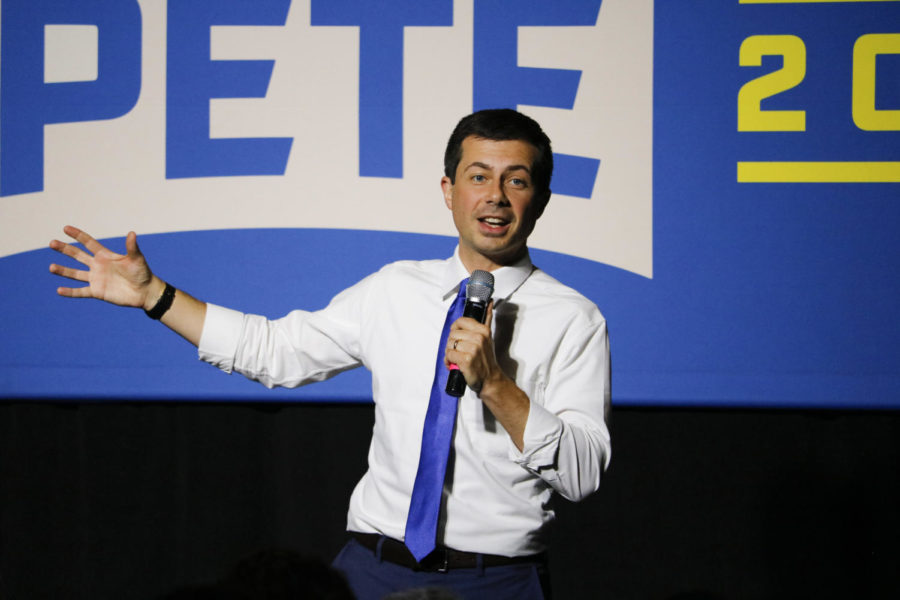Pete Buttigieg releases college affordability plan
Presidential candidate Pete Buttigieg at a rally in the Scheman Building on Oct. 16. When asked if America was ready for a gay president, Buttigieg recalled even after publicly coming out, Buttigieg said he secured 80 percent of the votes in his 2015 mayoral re-election bid.
November 18, 2019
Pete Buttigieg released a new plan on higher education early Monday.
“When you come from a family of educators like I do, you know the power of learning to open new horizons and opportunities,” Buttigieg said in a statement. “As our world and our economy change, access to ongoing higher education is also increasingly necessary to thrive. For too many Americans, however, that opportunity is out of reach.”
Buttigieg’s plan would provide tuition-free college for more than seven million students eligible for Pell Grants and for those from families earning up to $100,000 annually. The plan would also “provide substantial tuition subsidies for students from families earning up to $150,000 and require that states improve affordability for all students.”
Buttigieg’s administration would combine that investment with a $120 billion investment to the Pell Grant program, including supplemental Pell Grants for public college students.
The plan also includes proposals to increase college success rates.
More than 40 percent of those who attend college do not make it to graduation, Buttigieg said in a statement. According to a report by the National Student Clearinghouse Research Center, 58 percent of students finish a degree within six years of starting it.
The plan calls for “significantly increased” investments in public colleges. In return, public colleges would be “expected” to reinvest up to a quarter of free-tuition aid in advising and emergency grants to cover “costs that might otherwise force students to drop out of school.”
Buttigieg’s plan would invest $50 billion in historically black colleges and universities (HBCU), tribal colleges and universities and other minority serving institutions over a decade. Over the past 30 years, at least five HBCUs have closed, with financial struggles as a contributing factor.
Cory Booker, one of Buttigieg’s Democratic presidential rivals, released a plan that would allow college athletes to be paid for the use of their name, image and likeness in October. Buttigieg’s plan includes similar language allowing for student-athletes to be compensated.
“[Buttigieg] will support regulation and legislation like California’s new bipartisan Fair Pay to Play Act, which ensures student-athletes can seek compensation for the use of their images, just like other college students, and engage agents to represent them in the marketplace,” according to his plan.
The plan also includes a number of ways Buttigieg would seek to increase safety on college campuses.
Buttigieg would enact a “comprehensive” process to amend Title IX regulations to focus on intervention and prevention, to protect survivors with counseling and academic accommodations and “[make] clear that schools owe each student a full investigation of their claim through a transparent process.”
According to his plan Buttigieg would also “recognize […] Title IX protects transgender students” and would ensure “they are able to take full advantage of all educational resources without facing discrimination.”
Buttigieg released his plan as he hit a new high in a new Selzer Iowa poll conducted for the Des Moines Register, Mediacom and CNN. Buttigieg has the support of 25 percent of likely Iowa Democratic caucusgoers, leading second-place Elizabeth Warren who has 16 percent support, and Bernie Sanders and Joe Biden who both have 15 percent support. No other candidates make double digits.

















